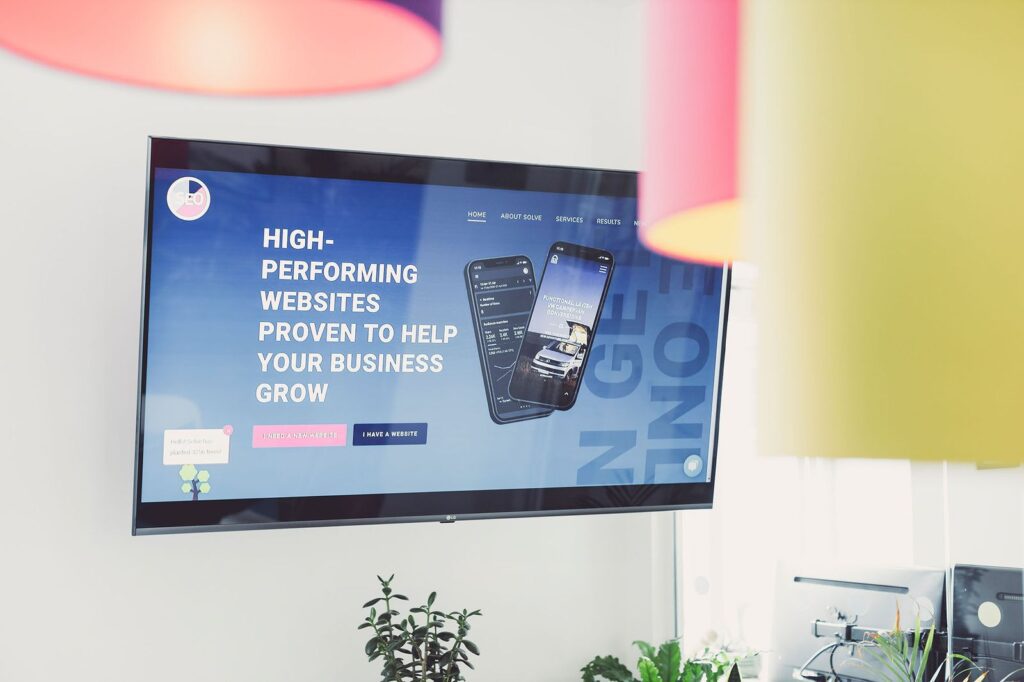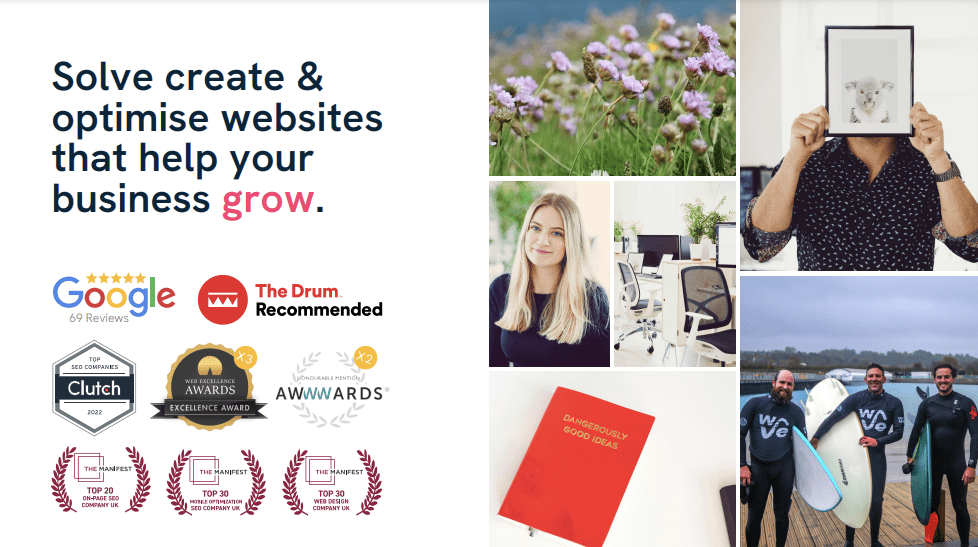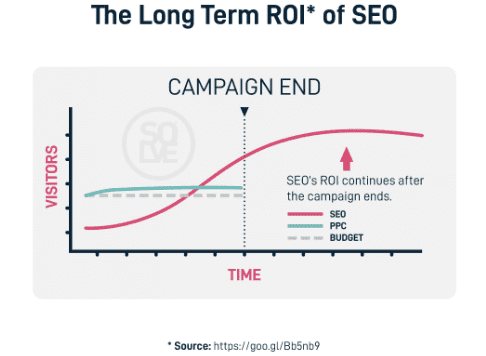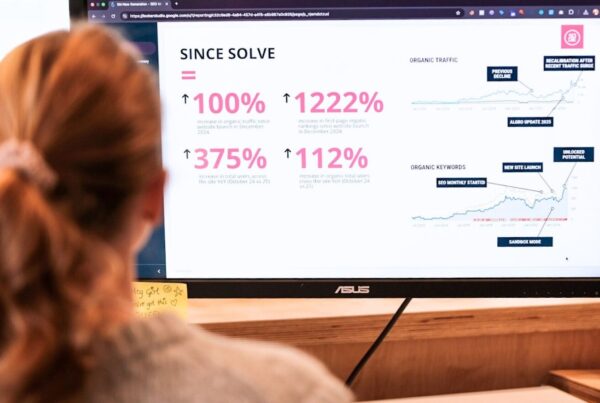
In this blog, we will cover:
- Why start an online business?
- Online business ideas
- 11 tips for starting an online business
- Choose your website domain name carefully
- Creating strong branding
- Set up your social media channels
- Get fast, secure and eco web hosting
- Select the best website builder or platform
- Define your value proposition
- Understand your target market
- Create compelling content
- Build your reputation
- Keep your website maintained
- Promote, promote, promote
- Start your online business today
Starting an online business can be daunting, especially if it’s a new venture. Statistics suggest that as many as 1 in 5 new businesses fail in the UK within their first year, so how do you ensure you make the cut and thrive online?
With global e-commerce sales reaching as high as $4.9 trillion in 2021, the online market presents significant opportunities for new and established businesses. And online, your website is your most valuable asset – it’s your shopfront, sales team, signage, marketing and more, all rolled into one.
Here at Solve, we’ve been building websites and helping companies grow their businesses online since 1998 (the year Google itself was born). Here’s our guide and top tips on starting an online business that packs a punch and stands the test of time.
Why start an online business?
The internet is a significant part of our modern lives. We do everything online, from shopping to socialising – and the pandemic has accelerated our internet use.
According to recent studies, people in the UK now spend an average of 3 hours and 37 minutes online daily. And it’s not just the young ones; 99% of people aged 16-44 are internet users, and even over 50% of people aged 75 years+ regularly head online.
We’re also still shopping more online since the pandemic. In May 2022, seasonally adjusted internet sales accounted for 26.6% of all official retail sales, compared with 19.7% in February 2020.
On a global scale, there are almost 5 billion internet users, over 60% of the world’s population. With stats like that, it’s easy to see the size of the opportunity that lies online.

Online business ideas
Whether your business focuses on products or services, there are lots of ways you can start online or expand an existing company virtually. The pandemic has shown us that regardless of your business model, there are opportunities to connect and build a business via the internet.
An online store is a perfect way for new and existing businesses to make their products available to the global marketplace.
For a service-based business, there are opportunities too. Online courses, video tutorials and even virtual fitness classes are all ways services can be carried out online.
Whatever your online business idea, a high-performing website will help bring it to fruition.
And even if you’re not an e-commerce business, people consult the internet for researching, locating and brainstorming too, so having a website and presence online is an essential part of all modern commerce.

11 tips for starting an online business
OK, that’s the why, and now for the how. Here are our top tips on how to start a successful online business.
1. Choose your website domain name carefully
Your domain name can be the first impression a prospective client gets of your business online, so try to keep it simple, easy to spell and memorable. You should also keep it to less than ten characters for ease of use.
The domain name you choose for your online business will quickly become integral to all your marketing materials, featuring everything from signage to business cards. Hence, an overly long address just isn’t practical. Your company name is a great choice, helping to establish your brand name online.
If you’re a company in the UK, users generally prefer ‘.co.uk’ domain names, which can help you rank better in local search results. It’s always good to use the ‘.com’ domain if you are taking your business global. It can get quite pricey to buy back domains if others purchase them.
Charities and other organisations usually use ‘.org’ domains, and ‘.net’, ‘.biz’, etc., don’t give the most professional impression.
Finally, don’t be fooled by ‘.co’ sites either; this extension stands for Colombia, not a company!
2. Create strong branding
Branding is a critical part of marketing, even for an online business. Create strong and recognisable branding that supports your values, enhances your messaging and sets you aside from your competitors.
Logos, colours, fonts and copy can all be used to make a lasting impression on visitors and sell your business. With almost 2 billion websites, you need to ensure yours stands out and only have a few seconds from click-through to attract attention. Visitors will simply bounce off a dull website that lacks brand impact, so wow them and get your message across.
3. Set up your social media channels
Social media is a crucial way to build an audience, establish your brand, drive traffic back to your website, and ensure you set up your social media channels.
Choose uniform handles and consistent branding across all sites. And it’s wise to secure handles for all major platforms (Facebook, Twitter, Instagram, YouTube, Pinterest, LinkedIn and Tiktok) even if you don’t plan to use these in the initial stages.
Ensure your content is engaging, shareable and consistent with your brand messaging and other digital marketing. On social media, it’s not really about selling your product or services. It’s about building an audience and brand awareness, so educate, inspire, and if it fits your brand, have some fun – social media is about being, well, social!

4. Get fast, secure and eco web hosting
Your website hosting significantly impacts your site’s performance, impacting user experience and ranking. Therefore, it pays to ensure yours is fast and secure.
A secure website host will ensure that your site’s user details and connections are safe, making it harder for nasty hackers to breach (which isn’t great for business).
A good web host will use efficient servers to store your data, ensuring that your website loads quickly – a significant influencer in user experience. Even a 0.1-second increase in load time can mean as much as 8% more conversions!
Load speed is also a confirmed ranking factor in search, meaning engines like Google will rank faster sites higher in results.
When starting a business, it’s also essential to consider the environmental impact of your website. With the average website generating as much as 4,700 pounds of CO2 a year, choosing a web host that powers its servers with renewable energy, like Solve, can be a way to reduce your business’s carbon footprint.

5. Select the best website builder or platform
There are many ways to build your website and many platforms available. However, many DIY builders have limited functionality and clunky coding that search engines struggle to read and rank. Not to mention, using a templated, drag-and-drop system limits your creativity and brand impact.
Here at Solve, we always recommend WordPress.org and have over 20 years of experience working with this platform. WordPress powers about a third of all websites online and have superior functionality and top security for business owners; it’s also SEO-friendly and well supported. We have 100s of success stories using this powerful CMS.
6. Define your value proposition
Why should a potential customer choose your business? What can you offer them that no one else can?
Defining your value proposition from the get-go is essential to becoming successful online, and it should be in prime position right at the top of your website.
And when creating your proposition, keep it customer-focused. People don’t want to hear about you; they want to know how your business can benefit them.

7. Understand your target market
Before you can define your value proposition, you must conduct market research to ensure you know exactly who your target audience is and their motivating factors. Only then can you create a website and branding that talks directly to them and prompts action.
As part of this process, you would usually do customer market research and competitor benchmarking to understand your USPs and how competitors target customers, as well as keyword research to understand customer needs and intents.
8. Create compelling content
Google likes happy users, and consequently, it ranks the best, most popular and valuable content higher in search.
Your task as a website owner is to create expert, authoritative and trustworthy content that convinces visitors and prompts action and sharing.
Compelling content will drive your online business, whether it be informative, benefit-led content on your website pages or educational and entertaining blog articles, social posts and videos.
9. Build your reputation
What does reputation mean in business? Everything, so start building your review base from day one! It’s amazing how many online businesses don’t have any or don’t value getting them.
But with as many as 77% of people consulting reviews before making a purchase, even having just a few positive reviews will go a long way.
Reviews build trust and give people confidence; as a result, they are a direct buying factor and an essential part of online business.
10. Keep your website maintained
Just like your favourite motor, your website needs regular servicing to keep it performing well.
Having a maintenance plan in place with your web developer will ensure your site is regularly updated for security, speed and performance – which maintains optimum search ranking and user experience. Win-win.

11. Promote, promote, promote
Finally, once your website is built, your biggest challenge is to get it seen online, and there are many ways you can do this.
You can execute social media marketing (including or excluding sponsored posts) and email marketing to build your audience quickly and drive traffic back to your website.
You can look at pay-per-click ads in search if you’re looking for quick wins, too, although bear in mind that your visibility will end when your ad does.
Search Engine Optimization (SEO) is another possible strategy that reaps benefits over the longer term and has a significant Return On Investment (ROI).
SEO is a multifaceted strategy that looks at everything from your content to website coding to ensure your presence online is optimised for the best possible ranking in search results. SEO takes time to produce results. The significant SEO benefits include increased traffic, better quality traffic and results over the long term.

Start your online business today
There you have it, our 11 tips for starting an online business.
There are many other factors to consider, so if you’d like to pick our brains a bit more or lean on our 20+ years of experience, give our legendary team of geeks a call today.
From web design and hosting to SEO and branding, we can help you start an online business that makes an impact.
Written by Lawrence Harmer
Founder, Director, SEO & Web Design Expert





